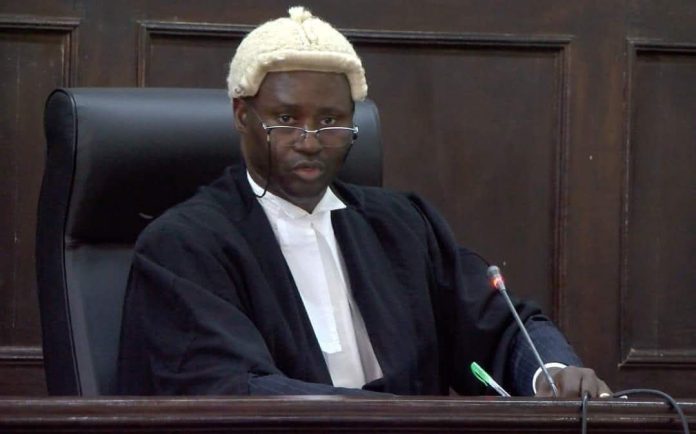By Mariama Marong
In a rare move reflecting the tension between legal practitioners and the press, Justice Ebrima Jaiteh of the Banjul High Court on Thursday allocated a designated seating area for journalists following a courtroom disagreement with two senior lawyers.
The incident occurred during proceedings in the ongoing Acute Kidney Injury (AKI) case, when Counsels Yassin Senghore and Loubna Farage raised objections to the presence of journalists sitting behind them in the public gallery. The lawyers argued that they felt uncomfortable having journalists directly behind them, expressing fears that their private conversations could be recorded.
The journalists had been sitting in that location — behind the lawyers’ bench but separated by a physical barrier — for years without prior incident. Veteran journalist Momodou Jawo of The Point newspaper stood his ground and refused to leave unless instructed by the presiding judge.
“I am not moving from here. Only the judge has the right to make such orders. I will not move without the judge’s order,” Jawo told the lawyers, insisting that journalists had always sat in that section while covering court cases.
Counsel Farage later raised the matter before the judge, claiming that a journalist was recording their private discussion. In response, Justice Jaiteh dismissed the accusation, emphasising that members of the press are guided by professional ethics.
“They are here to record the court proceedings, and not private conversations of counsels,” the judge stated. “Journalists are bound by their ethics, and recording private conversations is not part of their mandate.”
Justice Jaiteh further underscored the importance of media access to judicial proceedings in the modern era. “The world is evolving. This is a digital age, and people must embrace change,” he said, noting that journalists play a crucial role in keeping the public informed.
“Normally, journalists should have their own seat in court,” he added.
The judge then pointed to the front seat on the left side of the gallery, officially designating it as the press section. He instructed the court clerk to print and place a label to mark the area for journalists.
Following the directive, all journalists in the courtroom relocated to the designated section. Justice Jaiteh’s decision brings a measure of clarity to seating arrangements for reporters covering high-profile court cases, while reinforcing the role of the press in public interest litigation.


















